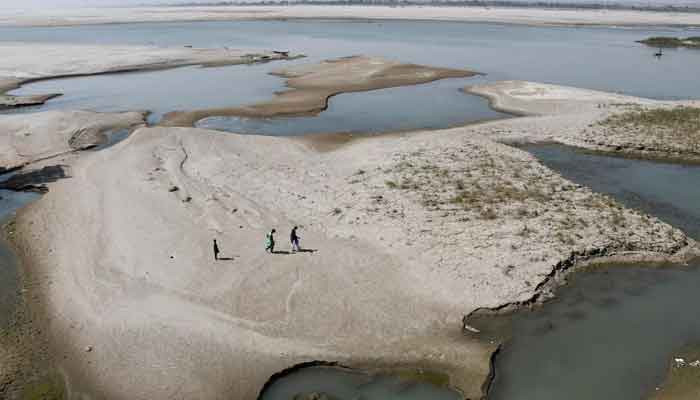Indian Expert Calls Modi’s Water Diversion Plan ‘Futile’
A prominent Indian water expert has dismissed the Modi government’s scheme to halt water flow to Pakistan as an ineffective measure. The expert cautioned that nullifying the Indus Waters Treaty would primarily exacerbate animosity between the two nations.
He stressed that India would need an additional 30 to 50 years to build the required infrastructure for storing the water currently channeled to Pakistan.
Iftikhar A. Drabu, a civil engineer boasting over 15 years of experience in the hydro sector across India and China, and formerly a consultant to prominent international firms, conveyed his perspective in an essay published by the Observer Research Foundation, a reputable think tank based in New Delhi.
Drabu concluded his essay by stating that India would gain nothing except being held accountable for instigating further bitterness, deeming any attempt to meddle with the Treaty a misguided endeavor.
Drabu clarified that obstructing water flow necessitates either storing or rerouting the rivers, both of which he deems impractical.
The three western rivers – Indus, Chenab, and Jhelum – constitute 80% (117 billion cubic meters) of the total water volume flowing into Pakistan. He highlighted that this volume is adequate to submerge nearly 120,000 square kilometers to a depth of one meter annually.
“Considering this in terms of reservoir capacity, the annual water volume could inundate the entire Kashmir Valley to a depth of seven meters,” he observed. “To store such a massive quantity, India would require 30 reservoirs the size of the Tehri Dam – India’s tallest dam. Where would we locate such extensive land areas for their construction?”
Drabu emphasized the significant time investment, noting that constructing a single Tehri-sized dam takes approximately a decade. Even if construction commenced immediately on 30 such dams, the initial water impoundment would not occur before 2030.
“Until then, Pakistan would continue to receive the complete water flow. And each subsequent year, we would require 30 new massive reservoirs to consistently block the western rivers – an utterly unrealistic proposition,” he contended.
Regarding river diversion, Drabu characterized the concept as equally “absurd.” Rerouting even one of the three rivers would necessitate building an artificial river extending hundreds of kilometers, presenting immense challenges in design, construction, and maintenance. He noted that such a project would demand investments of several lakh crores of rupees, the acquisition of thousands of hectares of land, and decades to finalize.
In either scenario – storage or diversion – Pakistan would not experience any noticeable impact for the subsequent 30 to 50 years, Drabu emphasized. He cautioned that the environmental ramifications of either approach would be devastating.
In summary, Drabu asserted that even if India were to revoke the Indus Waters Treaty today, it would have no immediate effect on Pakistan’s water provision. He stressed that the flow of water to Pakistan would persist uninterrupted until India finalizes these monumental projects.
However, Drabu cautioned that revocation would entail substantial political repercussions. He warned that with the Indus Basin underpinning 90% of Pakistan’s agriculture and employing over 40% of its population, any Indian action to cease water flows would be perceived by the average Pakistani citizen as an attempt to suffocate their nation.
He elaborated that it would provoke apprehension and uncertainty without precipitating any actual water scarcity – merely providing ammunition to hardline elements in Pakistan who seek deterioration in bilateral relations, offering a golden opportunity to further exacerbate tensions between the two nations.



Comments (0)
No comments yet. Be the first to comment!
Leave a Comment